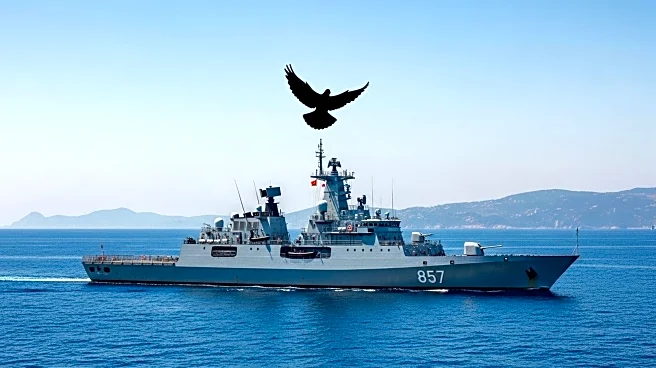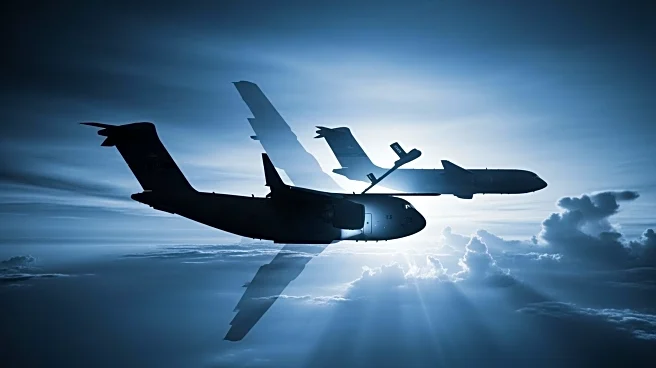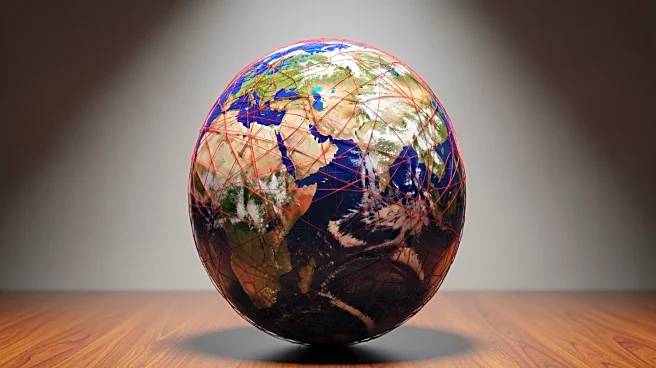What's Happening?
The Israeli military has intercepted and boarded several boats from the Freedom Flotilla Coalition (FFC) as they were sailing towards Gaza. The FFC, an international network of pro-Palestinian activist groups, reported that the convoy was carrying over $110,000 worth of vital aid, including medicines, respiratory equipment, and nutritional supplies intended for Gaza's hospitals. The interception involved a boat named The Conscience, which was carrying 93 journalists, doctors, and activists, along with three smaller vessels. Passengers are reportedly being held in unknown conditions. Israel's Ministry of Foreign Affairs confirmed the raid, stating that the vessels and passengers were transferred to an Israeli port and are expected to be deported. The incident has drawn international condemnation, with Malaysian Prime Minister Anwar Ibrahim and Turkiye's Foreign Ministry criticizing Israel's actions as violations of international law.
Why It's Important?
This interception highlights ongoing tensions surrounding humanitarian aid efforts to Gaza, a region facing severe shortages in medical supplies and other essentials. The Israeli blockade of Gaza has been a point of contention, with critics arguing it exacerbates the humanitarian crisis. The interception of the flotilla may further strain diplomatic relations between Israel and countries whose citizens were involved, such as Malaysia and Turkiye. Additionally, the incident underscores the challenges faced by international activist groups in delivering aid to conflict zones, raising questions about the balance between security measures and humanitarian needs.
What's Next?
The passengers of the intercepted flotilla are expected to be deported, according to Israeli authorities. The international community may continue to pressure Israel for the release of detained activists and demand accountability for alleged violations of international law. Activist groups may seek alternative routes or methods to deliver aid to Gaza, potentially leading to further confrontations. Diplomatic discussions may ensue as countries involved in the flotilla seek to protect their citizens and address the broader implications of the blockade.
Beyond the Headlines
The interception of the flotilla raises ethical questions about the rights of humanitarian organizations to operate in conflict zones and the responsibilities of states to allow aid delivery. It also highlights the legal complexities surrounding maritime operations in international waters and the enforcement of blockades. Long-term, this incident may influence international policies on humanitarian aid and the role of activist groups in global conflict resolution.








